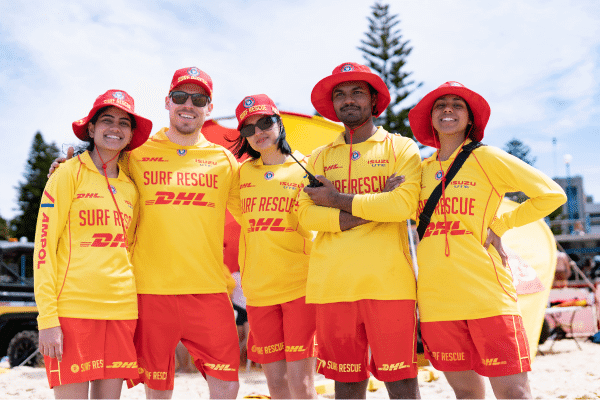Twenty-three-year-old Harsha Vardhan Reddy Dwarakacharla had never been swimming before coming to Australia. But when he migrated to study a Masters of Telecommunication at UNSW, just eight minutes away from Coogee Beach, he found himself wishing he could dive into the waves.
“My parents never allowed me to get into the water. They said, before sending me to Australia, to not enter to the water. But being in Australia, where there are a lot of beaches around you, you can’t just see them [especially] when your friends are getting into the water. I felt alone,” he remembers.
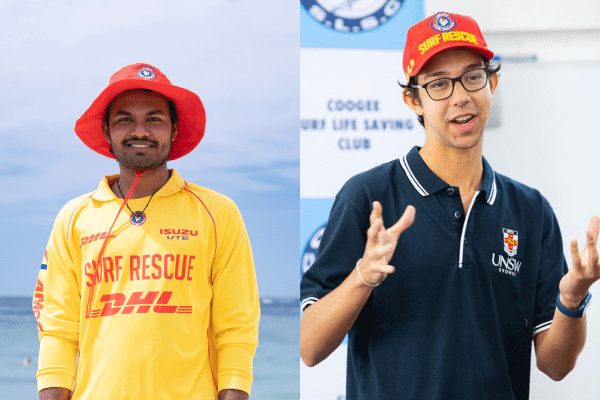
UNSW Water Safety Officer Oliver Jackson says he encounters stories like Harsha’s all the time. A 2022 UNSW Study examining beach safety among South Asians revealed people born in India make up the highest proportion of migrant drownings at Australian beaches between 2009 and 2019.
“Many international students, many migrant groups, have never set foot on a beach before they come to Sydney. Some of them come from inland towns and communities where there isn’t huge access to pools,” he says.
Jackson saw a need for foundational beach safety for migrants to combat the rising statistics, and in collaboration with the Coogee Surf Life Saving Club, they developed Beach Ocean Safety program, teaching UNSW’s International Students vital skills to plan a safe trip to the beach. Now, the Beach Ocean Safety program will be made available across NSW to other universities and migrant and community groups.
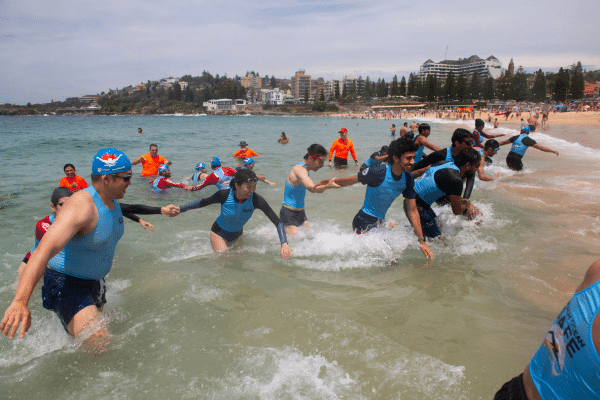
“This program teaches international students and anyone from a multicultural community how to get in and out of the water, how to tread water, how to float – practical skills that are so important when you’re going down to the beach – but also theoretical skills such as first aid and CPR,” says Jackson.
“We’re trying to teach international students everything they need to know to be able to have a safe day at the beach, but also to be able to pass on that knowledge to their friends and their families.”
Since its pilot in March 2023, the Beach Ocean Safe program has taught more than 65 international students from over 15 countries, including Harsha, how to stay safe on Australian beaches.
Through the program, Harsha has well and truly overcome his fear of water, something he says is ‘one of the greatest things he’s achieved so far’.
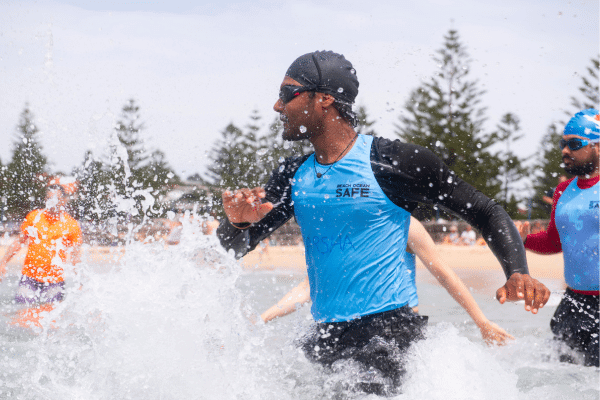
Now volunteering as a qualified lifesaver at Coogee Beach, he sees firsthand some of the challenges South Asian migrants experience on the beach.
“Most of the people don’t know what the [red and yellow] flags are set for, so they swim outside; they feel they don’t know swimming and should be separated from the other groups, so they will enter alone at the side [of the flags] which is very risky as that’s where the rip currents are present,” Harsha says.
In addition, UNSW research also revealed that many South Asians enter the water fully clothed, and at unpatrolled beaches, greatly increasing their risk of drowning.
Jackson says the rapidly changing nature of sea currents, and limited patrolling resources mean beaches offer a particular challenge for migrants to Australia, including those who may already know to swim.
“The pool is very much a controlled environment. You’re not getting powerful rips coming out of nowhere or waves that are just rolling in, so it’s a great place to learn and start that foundation. But if you do want to go for a swim in the beach, you require a different set of skills, which is where the program comes in.”
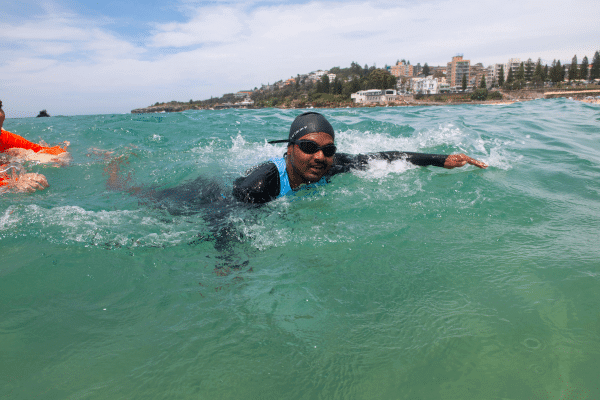
Equally, many migrants miss out on early exposure to beach culture in Australia, a ubiquitous part of growing up locally, affecting their prudence around water.
“There’s a reason why some of the best swimmers in the Olympics are up in Australia, because we start teaching kids how to swim from the age of three up, they do classes in schools, and we have access to some of the best swimming facilities in the world and these amazing, beautiful beaches,” Jackson points out.
“International students or migrants may not have access to aquatic facilities and these public safety awareness campaigns, and it can be very hard to transition into an aquatic culture that’s so different to their home country.”
With the implementation of the Beach Ocean Safe program at surf clubs across the state, Jackson hopes to provide practical beach safety experience, particularly on the meaning of the flags, detecting rip currents and not attempting activities beyond your swimming level.
For those planning a trip to the beach, he recommends the following resources.
“The Surf Life Saving NSW Coastal Beach Safety Hub has resources in a lot of different languages, so this is a great place to start if you want to learn about how to be safe at the beach. There’s also an app called SLS Beachsafe which I’d highly recommend downloading before you go visit the beach,” he says.
“Remember to always swim between the red and yellow flags and finally, just make sure you have fun on the beach. It’s a place of enjoyment and we really want to encourage people to go to the beach over the summer, but just make sure you stay safe.”



